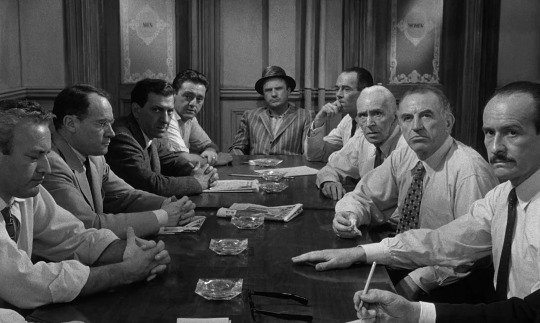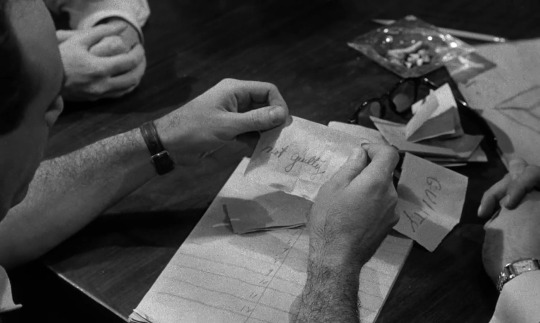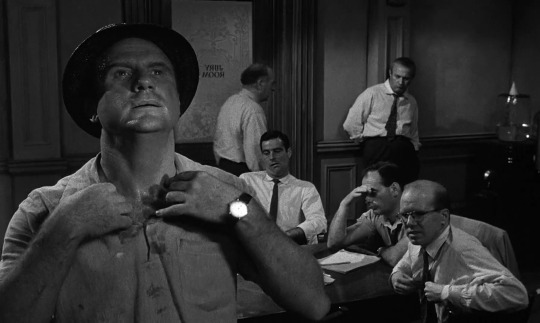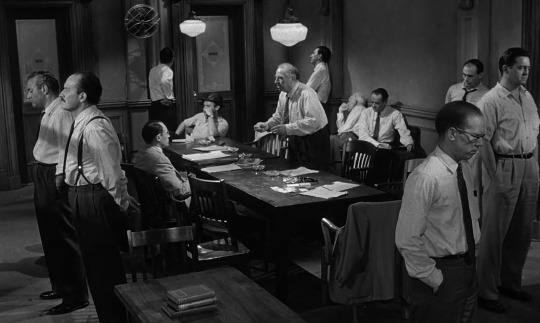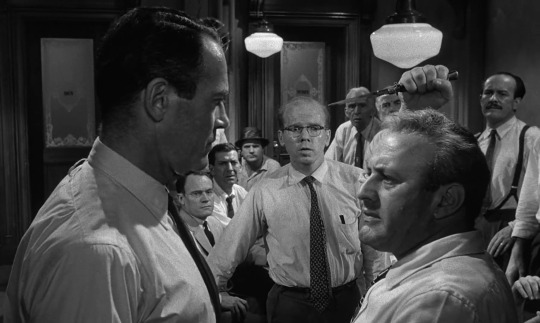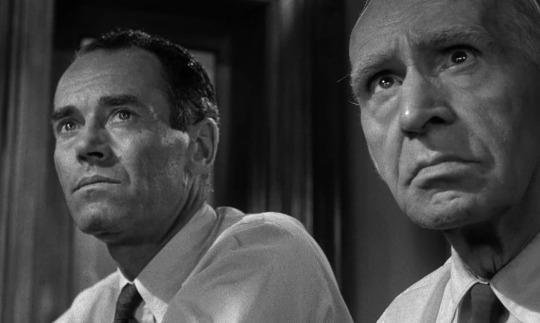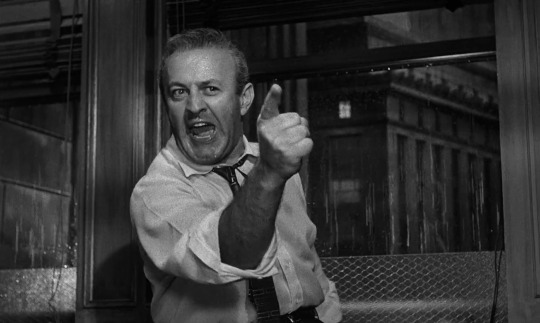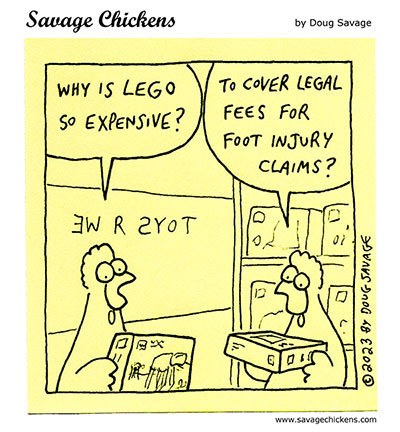Text
0 notes
Text
0 notes
Text
0 notes
Text

"Just One More Thing..." investigator Trait from Eureka: Investigative Urban Fantasy. Every investigator has 3 to 6 Traits!
653 notes
·
View notes
Text
State troopers face unique challenges in civil litigation that go beyond their traditional role in law enforcement. Their day-to-day responsibilities are critical in supporting legal proceedings and upholding justice, from gathering evidence to providing testimony. Here’s a closer look at the challenges state troopers encounter in civil litigation:
Rigorous Investigation Protocols
State troopers are trained to adhere to rigorous investigation protocols when handling civil cases. They must meticulously document crime scenes, collect physical evidence, and interview witnesses to ensure the integrity and admissibility of evidence in court. These procedures are essential for building a solid legal case and withstanding scrutiny during legal proceedings.
Balancing Law Enforcement and Legal Responsibilities
State troopers must balance their law enforcement duties with their roles in civil litigation. This dual responsibility requires them to navigate complex legal frameworks while maintaining their commitment to public safety and justice. They play a crucial role in providing factual testimony and forensic analysis that support the legal arguments presented by attorneys.
Emotional and Psychological Toll
Civil litigation can affect state troopers emotionally and psychologically. They may encounter traumatic situations, face aggressive cross-examination in court, or experience personal challenges related to their professional duties. Therefore, state troopers need to receive adequate support and resources to cope with the pressures of litigation and maintain their well-being.
Adherence to Legal Standards
State troopers operate within strict legal standards and ethical guidelines when handling civil cases. They must ensure that all evidence collected is obtained lawfully, adhering to chain of custody protocols and respecting constitutional rights. This commitment to legal standards enhances their testimony’s credibility and reinforces the judicial process’s fairness.
Collaboration with Legal Counsel
State troopers collaborate closely with civil litigation attorneys throughout the legal process. They provide expert insights into investigative findings, assist in drafting reports and affidavits, and prepare to testify in court. This collaborative effort ensures that attorneys can access comprehensive, accurate evidence to support their client’s claims or defenses effectively.
Behind the badge, state troopers navigate a challenging landscape of civil litigation where their investigative skills and legal responsibilities intersect. They play a pivotal role in gathering evidence, providing testimony, and upholding the principles of justice in court. By understanding state troopers’ day-to-day challenges in civil litigation, we gain a deeper appreciation for their contributions to the legal system and their commitment to serving and protecting communities with integrity and professionalism.
0 notes
Text
Legal myths and misconceptions are surprisingly common and can lead to confusion and potentially costly mistakes. Understanding the reality behind these myths is crucial for making informed decisions. Here are some standard legal myths debunked to help you navigate the legal landscape more effectively.
“Verbal Contracts Aren’t Legally Binding”
Many believe only written contracts are enforceable, but verbal agreements can be legally binding. The challenge with verbal contracts lies in proving their existence and terms. While some agreements must be in writing (such as real estate transactions), many others can be upheld without sufficient evidence. However, it is always best to get written agreements for clarity and protection.
“I’m Not Responsible for Someone Else’s Debt Unless I Signed a Contract”
You might assume you’re only liable for debts you’ve explicitly agreed to, but certain situations can make you responsible for someone else’s debt. For example, in community property states, spouses may be liable for each other’s debts. Co-signing a loan or being a joint account holder can also make you responsible for repayment.
“If I Die Without a Will, the State Gets Everything”
Dying without a will (intestate) means state laws determine how your assets are distributed, but this doesn’t mean the state claims everything. Instead, your property is divided among your closest relatives according to intestacy laws. Only if no relatives can be found does the state take possession. Creating a will is essential to ensure your assets are distributed according to your wishes.
“Police Must Always Have a Warrant to Search My Home”
While the Fourth Amendment protects against unreasonable searches and seizures, there are several exceptions to the warrant requirement. Police can enter your home without a warrant if they have probable cause to believe evidence is being destroyed, in hot pursuit of a suspect, or if there is immediate danger. Additionally, if you consent to the search, a warrant is not needed.
“A Power of Attorney Gives Me Authority After the Person’s Death”
A power of attorney (POA) grants someone the authority to act on another’s behalf during their lifetime. However, a POA becomes void upon the person’s death. After death, only an executor or administrator appointed through probate court has the legal authority to manage the deceased’s affairs.
“Signing a Contract Under Duress Makes It Invalid”
Contracts signed under duress can be challenged, but proving duress requires demonstrating that one party was forced into the agreement through unlawful threats or pressure. Simple pressure or stress doesn’t constitute coercion in a legal sense. Courts require clear evidence of coercion to void a contract on these grounds.
“You Can Always Cancel a Contract Within Three Days”
Many believe a universal “cooling-off” period allows them to cancel any contract within three days, but this is not true. The three-day rule applies primarily to door-to-door sales and certain specific transactions. Most contracts are binding once signed, so reading and understanding the terms is essential before agreeing.
1 note
·
View note
Text
26 notes
·
View notes
Text
Things You Should Know Before Consulting a Lawyer

Things You Should Know Before Consulting a Lawyer
Introduction
Before consulting a lawyer, First What does a law firm do? It’s really very important to be well-prepared to ensure you get the most out of the legal advice you need. Understanding the process, providing relevant documents, and knowing what questions can be asked will make your consultation more efficient and productive, which will attract valuable clients. This guide covers key elements to consider before meeting with a lawyer, helping you feel confident and informed about your legal journey and letting you know that you might search for the best lawyer in Chennai so we’ll go further.
Understanding Your Issue
You should know before consulting a lawyer, it is essential to understand your legal issue clearly. Get to know about the nature of your problem whether it's a business dispute, family matter, or criminal issue, etc., Do some basic research in order to familiarize yourself with relevant terms and concepts. Such preparation enables a client to engage their lawyer in a way that would help them get answers to the right questions as their lawyer will have all the information that is necessary for assessment of the case. The definition of your issue is crucial to reducing consultation, unnecessary negotiation, and delay in your matter.
Gathering Necessary Document
As may be expected, there is much that a man or woman can do beforehand, including collection of necessary documents before a meeting with the lawyer. It is good to have the paperwork in order to enable your lawyer to listen to you and give you proper legal counsel. Determine case related papers according to your issue family, such as marriage certificates or financial statements; business, such as contracts; criminal, such as police reports. The better your collection is, the more effective your lawyer will be in analyzing your case.
Ensure you arrange your documents systematically so that when need arises you go through them effectively. Duplicate some as it may be handy to have some extras to present to your lawyer when they require or when making filings. Upload any letter concerning your legal concern including emails/notes etc. This preparation will lead to a better discussion.
You may be confused on which documents to bring; you will be advised when you are setting the appointment with the lawyer’s office. Preparation is also time-efficient because it also lays a good groundwork for your defense hence preparing your attorney.
Clarify Your Need
In advance of meeting a lawyer, it is actually essential to clarify your goals regarding your legal issue. Consider what you want to achieve whether it's resolving a dispute, negotiating a settlement, or seeking representation in court. Be specific about your objectives, such as custody arrangements in a family law case or filing for divorce.
Clearly outlining your goals enables your lawyer to tailor their advice and strategies to meet your needs. Discussing your expectations fosters a more productive consultation and strengthens the lawyer-client relationship, ultimately leading to better outcomes for your situation.

Make Sure Lawyer’s Experience
In order to choose a proper lawyer the review of his experience is necessary so that he would be capable of solving the given problem. Always consider an attorney who has a specialist in the specialized area which is being considered such as family law, criminal law, corporate law among others. Experts are always known to have inside knowledge of their line of work and this highly comes in handy in most times especially during your case. Ask them the number of years they have practiced and the nature of such cases as they handled. An advocate who has handled similar cases and cases that arose with similar circumstances may be of great help.
Also, work with a lawyer comfortable with operating in the local environment and know the legal system since it can help them; besides it can benefit from the connections within the legal system that may favor a given case. Never shy away from demanding the client to connect you to his or her former clients so that they can provide feedback regarding the sector, professionalism, level of communication as well as efficiency of the consultant. In conclusion, selecting the right lawyer brings confidence in the experience of the lawyer who is hired to represent a client with an aim of solving a case.
Prepare What You Want to Ask
I know that Preparing a list of questions before your consultation with a lawyer is crucial for ensuring you get the information you need. Take the time to think about the importance of your case and what you want or hope to learn during the meeting. This preparation will help you make the most of your time valuable and ensure you don’t forget to address any important concerns.
Start by drafting questions related to your legal issue, such as inquiries about the lawyer's experience, their proposed strategy for your case, and potential outcomes. You might also want to ask about their fees, billing practices, and how often you can expect updates on your case. Additionally, consider asking about the timeline for resolving your issue and any steps you need to take on your end. Having these questions ready will facilitate a productive discussion, allowing you to gain valuable insights and make informed decisions about your legal representation.
Know about Confidentiality
Understanding confidentiality is essential when consulting with a lawyer. Attorney-client privilege is a legal principle that ensures any information you share with your lawyer remains private, creating an atmosphere of trust and open communication. This means you can freely discuss the details of your case without worrying that the information will be shared with others.
Before your consultation, it’s important to clarify how your lawyer handles confidential information. Ask about their policies regarding data protection and what steps they take to keep your information safe. Knowing these practices can help you feel more comfortable sharing sensitive details about your case. The more honest and open you are with your lawyer, the better they can advise you and create an effective legal strategy. Understanding confidentiality also emphasizes the importance of honesty in your conversations, as it is crucial for achieving the best possible outcome for your situation.
Legal Rights and Responsibilities
Thus, it is crucial to find out your legal position concerning the rights and obligations in connection with your case prior to the personal meeting with a lawyer. Understanding the rights you have allows you to defend yourself and make the right choices should you find yourself in the legal system. When it comes to what you are handling, be it a family related issue, a business issue or a criminal case, your rights vary. Please, take a while to search for laws that go to the case to find out a little about what you can claim.
Moreover, like any other person, you have certain responsibilities as will be explained below. This also encompasses any legal requirements that you have like when to file some papers or what step you are required to undertake in a particular legal proceeding. If you are aware of these responsibilities, it will be easier for you to avoid actions that may prejudice your case. This knowledge of rights and responsibilities will help you be an active participant with your attorney and ask the questions that will allow you to be involved in your case. The awareness possessed from reading this will aid to make the consultation go well, and increase the probability of a favorable response.
Consulting Fees
Consulting fees are among the things that potential clients need to know before they sit down with the lawyer. It used to be that lawyers charged fees in many ways and understanding how the fees are likely to be structured will matter a lot. Other payment structure categories include fixed charges for services to be provided, charges that are based on the time taken to complete a task as well as charges that are graduated in proportion to the monies that one might recover in a legal process. To find out the fees charged by the lawyer and what the charges will cover, you should talk to the lawyer before your scheduled meeting. This will assist you to avoid hitches when you are billed to pay for the products and also people used to ask What is the salary of the best law firm?
Further, you need to learn whether there are any other expenses you are to incur which include cost of having to go to the court, charges for filing various papers among others. Certainly, it is permissible to discuss with the lawyer how much money you are willing to spend. Most are willing to discuss with you and find a suitable payment plan that shall suit your Pocket. It is also important to know about consultant fees and other costs in order that you can make the right decision on the kind of legal services you need and at the same time not stress financially.

Conclusion
In conclusion, knowing what to expect before consulting a lawyer can make a significant difference in your legal experience. Understanding your issue, gathering necessary documents, clarifying your goals, and ensuring the lawyer's experience are all essential steps in preparing for your meeting. Additionally, being aware of confidentiality, understanding your legal rights and responsibilities, and discussing consulting fees will help you engage effectively with your lawyer.
By taking the time to prepare and being open about your needs and concerns, you can establish a productive working relationship that can lead to a positive outcome. Remember, a well-prepared consultation not only sets the foundation for your case but also empowers you to take control of your legal journey with confidence.
Reference
We Provide the Best Law service for you approach us Immediately
You Can contact us through a Best Law firm in Chennai
6 notes
·
View notes
Photo

Blossom outside the Honourable Society of the Middle Temple
79 notes
·
View notes
Text
Lawyering through fandoms: Counteroffers
Monkey D. Luffy wants to buy a ship for his crew, the Straw Hats. He comes across a ship he likes and walks up to the merchant. Luffy asks how much to buy the ship.
Merchant: “That’ll be 30 million berries” (OFFER)
Luffy: “That’s too much! I’m not paying that! How about I buy the ship at 10 million?” (COUNTER-OFFER)
Merchant: “No! Then no sale.”
Luffy: “Aw man, fine! I’ll buy it at the original price.”
Merchant: “The offer no longer exists! Goodbye!”
Unfortunately for Luffy, he can no longer follow through with the original offer since he gave the merchant a counter-offer of 10 million. A counter-offer is both a rejection of the original offer and a new offer. Once the original offer is rejected, that’s it. It’s up to the merchant to either accept Luffy’s offer or reject Luffy’s offer and make a new one.
17 notes
·
View notes
Text

The arch on Crown Office Row separating Middle Temple and Inner Temple in the Inns of Court
61 notes
·
View notes








